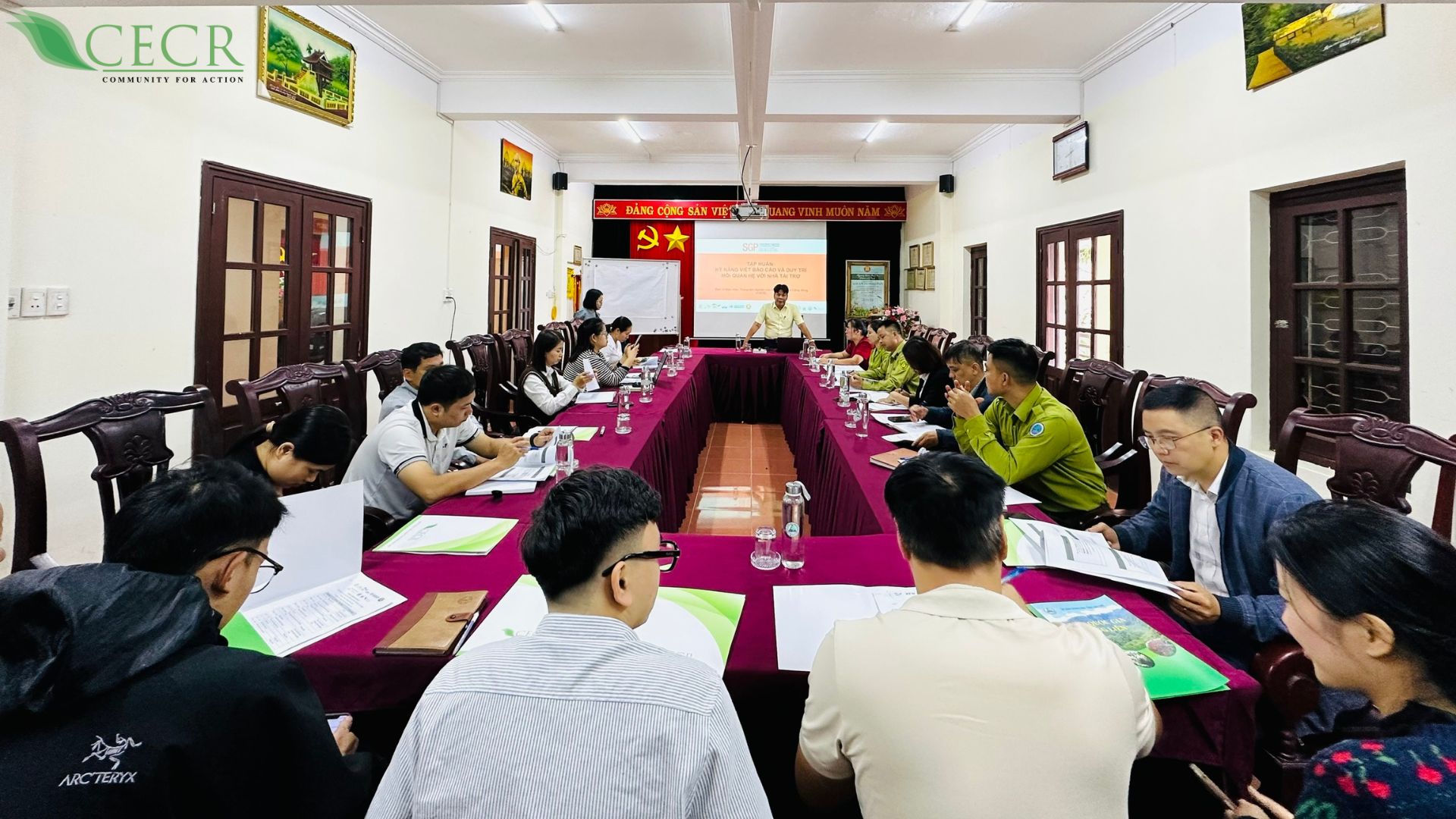On the morning of May 8th in Hanoi, Coalition for Clean Water with the Commission of Science, Technology and Environment of the National Assembly, the Ministry of Natural Resources and Environment have jointly organized a seminar on “Policy and legislation review water pollution control “. Joined and chaired the seminar are representatives of the Commission – Deputy Chairman Vo Tuan Nhan and Deputy Director of the Vietnam Environment Administration Mr. Mai Thanh Dung.
The purpose of the seminar is to discuss the gaps in existing policies and current document systems related to the problem of controlling and preventing water pollution. Thereby exchange and propose solutions and actions to stop and reverse the trend of water pollution which is increasingly severe in Vietnam today. The proposal of the XIV National Assembly to conduct Supreme supervision on water environment should be considered and a separate law on water pollution control should be put into the legislative work program of the Assembly with high feasibility as many countries around the world have issued in order to contribute to building a solid foundation for the sustainable development of Vietnam in the 21st century.
At the seminar, Mr. Vo Tuan Nhan – Deputy Chairman of Committee of Science, Technology and Environment of the National Assembly said: Over the past 25 years, we’ve had a great growth, we have raised living standards for millions of people and achieved effective poverty reduction. In 2014, our country’s GDP increased by 5.9%, Vietnam had become the second-fastest growing country after China (Disclosure of General Statistical Office, 12/2014). However, because our country’s economy depends on natural resources, especially agriculture, fisheries and aquaculture, afforestation. This dependence has led to soil degradation, deforestation, and degradation of coastal marine resources because of excessive fishing and environmental degradation, especially water environment. Along with rapid urbanization and industrial development, environmental issues such as waste, pollution are becoming more pressing, including water pollution which is becoming increasingly serious, have been causing the problem of social uncertainty. According to current statistics, Vietnam has about 2,360 over 10km-long rivers and thousands of lakes and ponds. There are also two large plains of the Red River Delta in the north and the Mekong Delta in the south with vast rice fields. Water resources are the habitat of unique fauna and flora, life support for hundreds of thousands of trees, plants, habitats of fish and native wildlife, and also the resident foundation for millions of people in Vietnam. Unfortunately, our water resources are increasingly degraded, several water sources were destroyed due to severe pollution caused by economic objectives activities and exploitation for human living/ domestic purposes. Pollution current state of our country has tended to grow out of control. Water pollution has raised the cost of production, affect the efficiency and products competitiveness of the industry, particularly fishery and agricultural products. The impact of water pollution on people’s health, according to statistics reported by the Ministry of Health and Ministry of Natural Resources and Environment, averagely up to 9,000 people per year have died from contaminated water, up to 200,000 cases where cancer was discovered that one important reason is due to the use of contaminated water.
Mrs. Nguyen Ngoc Ly – Director of the Centre for Environmental and Community Research (CECR) has the important role of water resources and the current status of water resources pollution. Approximately 50% of daily news articles reflecting on water pollution, the rest are the news about air pollution, soil pollution, urban waste management, environmental management, biodiversity management. So if these costs are included in the balance sheet: the direct cost caused by environmental pollution, the cost for the disposal of garbage, sewage, polluted water and air, as well as indirect costs for the treatment of diseases caused by environmental pollution, Vietnam’s GDP growth may be lower by 5-10%.
According to Ms. Ngoc Ly, from an economic perspective, water is a source of raw materials, the environment for production, exploitation, the environment for tourism services… Water can only serve the economy as a material and environment to exploit services when natural water has high quality, uncontaminated. If water is in the opposite state, that is contaminated, it cannot serve these functions, but also become a burden and very high cost it takes for pollution treatment into clean water. Clean water is a necessity and prerequisite and can be seen as an asset for economic development. To address this, Ms. Ngoc Ly has proposed to the National Assembly, ministries and departments consider creating a legal framework to build Water Pollution Control Law in the coming term to quickly overcome the pollution and create water resources that are the platform property serving for economic development and create an environment for aquatic plants and animals thrive.
Representing the Ministry of Natural Resources and Environment, Mr. Hoang Van Bay, director of the Department of Natural Resources and Environment has pointed out the difficulties and challenges in the implementation of policy and law system of water pollution control in our country. At the moment, our country still has many legal gaps, for instance in planning: Not clearly define responsibilities to participate in planning and sanctions; not express the priority principles in identifying activities and allocating funding; not detailedly determine and assign responsibility for management and implementation of the ministries, sectors and localities; not identify locations and the relationship between plannings. There are also other difficulties, such as environmental assessments; observation and monitoring of water resources; emission sources control, pollution remedy, incident response; damage compensation; financial sources…
Closing the seminar, experts, scientists agreed on the need to set a Water Pollution Control Law – This is the dedicated efforts of the Center for Environment and Community Research. However, for these proposals to become reality needs consideration, specific route built that is feasible in practice, combined with the study of the international experience.


 Tiếng Việt
Tiếng Việt

